
by Dr Neha | Mar 29, 2021 | Health
Complex carbohydrates provide fibre and nutrients through fibre, polyphenols, essential vitamins and minerals. Replacing carbohydrates with other macronutrients such as protein and fat can affect brain function. Instead of simply cutting them out of your diet, you should think about the quality and quantity of carbohydrates you are consuming in your daily life. There is no doubt that reducing the added sugar from your diet is extremely beneficial, especially for weight loss.
But supplying the body with pep is not the only role that carbohydrates play, and in this article, we will look at what happens if you don’t consume enough carbohydrates in your diet plan. Complex carbohydrates, which consist of complex sugars, fibre, polyphenols, vital vitamins and minerals, have many important health benefits, even though they contain complex sugars and calories. Carbohydrates, found in fruits, vegetables, whole grains, nuts, legumes, seeds and other foods, are the most important energy source of our body.
While you are enjoying your meal, the carbohydrates in the food you eat are broken down into small units of sugar, and these smaller units are absorbed via the digestive tract and into the bloodstream. Others are considered more important, such as vitamins, minerals, fibre, protein, vitamins and minerals.
Why Are Carbohydrates Important?
The truth is that carbohydrates are an important part of your diet and are found in a wide range of healthy foods, including fruits, vegetables and whole grains. Understanding the different types of carbohydrates in your food, as well as choosing the right ingredients, can ensure that you benefit from all the health benefits that these macronutrients offer. Let’s take a look at how these important nutrients can affect your health.
Research shows that carbohydrates are an important part of a healthy diet that provides vital nutrients that your body needs for optimal function. Although not all carbohydrates are the same, the best carbohydrates are those that keep the bodyweight healthy and makes you feel good. The added sugars in ready-to-eat products are also listed in the “simple carbohydrates” category but are not as healthy.
Which Carbohydrate Is Unhealthy For You?
These “simple carbohydrates,” also known as refined carbohydrates, are highly processed and almost always have no nutritional value. Although carbohydrates in your diet are good for you and most carbohydrates contain the fibre you need daily, it is important to consider which carbohydrates are considered unhealthy and why. Carbohydrates are an essential part of our diet plan and are found in all kinds of foods we love, such as fruits, vegetables, meat, dairy products, eggs, nuts and seeds.
Studies have shown that replacing saturated fat in processed foods with other carbohydrates such as whole grains, legumes, nuts and seeds is associated with an increased risk of obesity, diabetes, heart disease, high blood pressure and high cholesterol. Carbohydrates function as a relatively fast source of energy and simple carbohydrates are quickly digested and absorbed. This results in higher energy content than complex carbohydrates, which provide more sustainable energy.
These carbohydrates are very nutritious foods, including legumes, nuts, seeds, fruits and vegetables. These are broken down in the body into carbohydrates such as whole grains, whole grain flour, brown rice, oats and other whole foods. The types found in sugar, processed cereals and everything baked with white flour are quickly broken down – they contain little or no fibre, and are deprived of nutrients which cause blood sugar and insulin levels to soar.
When eating cereals as part of your diet, make sure you eat 100 per cent whole grains, such as whole grains, whole barley, oats, brown rice, wheat flour and brown sugar.
Net carbohydrates are typically used for products that exclude fibre, sugar and alcohol, or both fibre and sugar. Products that also contain added sugars, such as sweeteners, preservatives, refined carbohydrates and distinct carbohydrates, are not the healthiest alternatives.
Carbohydrate foods that contain them increase blood sugar levels and can cause diabetes, heart disease and other health problems. A glycemic index causes a decrease in the diet, such as a low-carb, high-fat or high-carbohydrate diet, which is typically limited to foods with a high carbohydrate content (e.g. fruits, vegetables, whole grains, legumes, nuts and seeds). Low- Carbohydrate foods such as nuts, seeds, fruits and vegetables are naturally low in the glucose index, but high in carbohydrates.
While carbohydrates have a reputation for being unhealthy and fatty, certain types can help you in weight loss by helping you control your waistline. This is particularly beneficial in terms of weight, due to the high fibre content of carbohydrates in fruits, vegetables, whole grains, legumes, nuts and seeds. Fibre moves quickly through the body, making you feel full for longer, while you get fewer cravings between meals. As you can see the various benefits of consuming carbohydrates, start including them in your daily diet and see the results!

by Dr Neha | Mar 25, 2021 | Health
Distractions have become a familiar sight in the modern workplace and can help us to fall into a trap known as cognitive fixation. This may sound counterintuitive, but considering that you are interrupted every 11 minutes and it takes 25 minutes for the brain to refocus on the original task, it’s best to try to avoid distractions at work. When you work in a high-stress environment, such as a corporate office, distractions can help you get out of the furrows we know as “cognitive fixation.” According to a survey conducted by Udemy, distractions at work affect your performance and productivity potential. Researchers have found that the more time you spend at work, the more time you lose to distracted office workers. The survey also found a marked increase in those who said they found it harder to focus on their work than those in the office.
While it is important to stay in touch with your staff to avoid cabin fever, it is vital to stay on track and make progress. Steps that workers can take to stay focused include silencing their phones and staying away from areas where they might otherwise be tempted to turn their attention to. Each tool is a distraction in itself, and when you work in a small office with little space and lots of distractions, it can make you overfocus.
What Is The Pomodoro Technique?
The Pomodoro technique is a time management framework that describes some of the most effective methods for improving productivity, and it is one of my personal favorites.
To help you and your team stay focused and efficient while fighting stress and maintaining a work-life balance, here are some tips that can help you.
Pomodoro technology is popular with people who work from home because it helps you manage distractions. It encourages you to work in blocks of 25 minutes, known as’ Pomodoro sessions’, with each block ending with a five-minute break.
According to a survey, the most effective way for remote employees to stay productive is to take a break. Research has shown that office workers take shorter breaks than outlying workers, while longer breaks have been shown to boost productivity.
Encourage workers to leave the office when they are particularly exhausted and distracted, to eat a healthy snack, walk to their house, or call a friend. Whether your employees work from home or not (not that there is anything wrong with taking a nap), good employees tend to buckle down and manage their time well.
Tips to get more efficient at work-
Remote workers are often more productive at home than in the office because they can work from home. Workers who do not commute for hours can start work earlier and manage their commuting time and their work is most productive.
Share your work schedule with other households so they know when you are taking a break, eating lunch, or no longer working.
Another way to eliminate distractions is to divide your projects into daily goals and stick to them. That is easier said than done, and therefore a productivity system can help to stay on track. As much as I want to claim the status of a highly productive person, the best thing I can do is say that I work for myself. By reading articles, checking out books, and asking questions of productive people, I gathered some of the good advice I could find to stay focused. These productivity tips will help you maximize your efficiency and achieve more as long as you spend less time on the go.
If you’re just rolling out of bed and trying to get to work, it can set the mood for the day. A better way to become more efficient is to make small changes and introduce healthier habits.
Showering, doing hair, getting ready, putting on work clothes, and really preparing yourself for a productive working day can do wonders to boost your mood and performance. An online study, work from home, or in-office job should be treated with the same attitude.
This way you prepare yourself and set a productive and positive mood for your working day. It is wonderfully liberating to set your own schedule, but it is important to set your schedule and work when you find the time because if you wait until you feel like working from home, distractions come to the side and swallow the time.
Setting a timetable and sticking to it is one of the most important aspects of a productive working day, not only for you but also for those around you.

by Dr Neha | Mar 18, 2021 | Health
You can prepare for success by planning what you will eat the next day, as well as the rest of your meals for the day and night.
Nutritious breakfast with protein, fiber, and healthy fats to get blood sugar back on track and reduce cravings throughout the day. Recognize that eating processed foods and sugar is likely to make you crave more of these foods. The aim is to increase fiber and antioxidants and replenish nutrients and energy. Prepare to have food to choose from the next day and have one or two healthy snacks to avoid making less healthy choices.
HEALTHY GUT HEALTH
The best ways to improve your gut health are to eat probiotic foods such as yogurt and sauerkraut, take probiotics, eat plenty of fiber and eat a healthy diet of fruits, vegetables, whole grains, legumes, and nuts.
Two studies have found that you can increase your metabolism by 24-30% within 1-1.5 hours and your blood pressure by 30-40% within 2 hours.
This equates to 96 extra calories burned for every drink you drink throughout the day, so the practice of this simple habit has two major benefits. A study has shown that a 30-minute meal every 30 minutes during the first 2-3 hours of the day increases your weight loss by 44-37%. This is a great way to save calories from extra foods you don’t eat, which can lead to slow but steady weight loss – over time you lose.
It also teaches you to pay more attention to and listen to your body, which is the best way to stay healthy and feel good in the long term. Start your day with a healthy breakfast, lunch, and dinner to provide your body with the nutrients it needs to stay healthy.
The first steps towards a healthy lifestyle can be overwhelming, but if you want to regain your health or just increase your level of activity, you will realize that simple changes are enough to make a difference. Eating healthy doesn’t have to mean eating protein powder or eating a dozen proteins for breakfast. Some of my favorites are a cup of coffee, a glass of water, and a piece of fruit for lunch or dinner.
Smart swaps in the kitchen or more frequent lacing of hiking boots can be a good start, but not the only one.
The best advice I can give you is if you are trying to live a healthy lifestyle and also lose things from your shopping list.
A nutritious diet can also improve your health and quality of life in old age. I think there are times when you crave sugary treats, but don’t be like me and crave them.
MOVE STEP BY STEP WITH YOUR DIET
Again, making too many changes at once can backfire, and restricting your diet can make you crave the very foods you’re trying to avoid. You probably have a list of things you already know you should do for a healthy diet. I recommend eating fruits, vegetables, nuts, seeds, whole grains, legumes, fruits, and vegetables and not processed foods.
Drinking water not only keeps you hydrated and improves the function of your body, but also keeps water flowing while maintaining weight. However, in the effort to maintain healthy habits, it is important to increase water consumption. If your primary goal is to get in shape and eat right, give water the attention it deserves.
Drink a large glass of water after each meal, and the feeling of fullness you will feel could help reduce your calorie intake. A healthy diet of fruits, vegetables, whole grains, nuts, and vegetables is the key to a healthier diet. Beans, eggs, and nuts are also great to supplement your daily consumption, as well as fruits such as bananas, apples, oranges, and oranges.
Plan to stay good that way you can keep your energy up and stay positive, and you can play at an elite level every day. Some habits make your life easier and give you a great body and a powerful mind on auto-pilot.
Look for a healthy eating plan, understand where to start, and get a personal nutritionist to give you the best and healthiest dietary plans.
For more such informative articles, click here!

by Dr Neha | Nov 17, 2020 | Body, Depression, Health, heart
Autumn means cooler, colder weather and of course, nutritious food for good heart health. Regardless of age, the production of products that have attained their peak is the right fuel to help children do their best, regardless of age.
A balanced, nutritious diet is an important part of maintaining a healthy heart. There are a number of diets that have been proven to be effective in preventing and treating heart disease. Suitable diets with the right amounts of fruit, vegetables, nuts, seeds, and beans can help reduce the risk of heart disease.
Plants are naturally low in fat and sodium and are also rich in vitamins and minerals that are missing from the standard diet. Instead, it is richer in processed foods and sugary drinks and is deficient in vitamins, minerals, and plenty of sodium.

Let’s break down the top three diets and see what the best options might be for you. Focus on incorporating heart-healthy nutrients into your diet to reduce your risk of heart disease.
Add more fruits and vegetables
Consume a variety of fruits and vegetables and limit saturated fat to lower cholesterol and blood pressure. Among the most protective nutrients that can improve heart health are omega-3 fatty acids, monounsaturated fatty acids, calcium, magnesium, potassium, iron, zinc, copper, phosphorus, manganese, and calcium. Omega 3s are essential fats that your body cannot produce, so they must be sourced from food sources.
It is a well-known fact that some people do not eat enough fruits and vegetables every day, and even if you do, they do not get all the nutrients they might expect. Try to think positively about the types of food you should be eating and focus on what you should not have been eating. Eat real foods that you enjoy in different food groups, including proteins and fats alongside plants. You should already be able to eat a nutrient – a dense, balanced diet, but you can do better by eating a variety of “real” foods such as fruits, vegetables, nuts, seeds, legumes and nuts, and seeds.
Nutrient-rich foods are foods that contain many nutrients with relatively few calories. To eat well, it is best to choose a mixture of nutrient-dense foods every day. Look for foods that contain high amounts of protein, fats, carbohydrates, vitamins, minerals, and fibre.
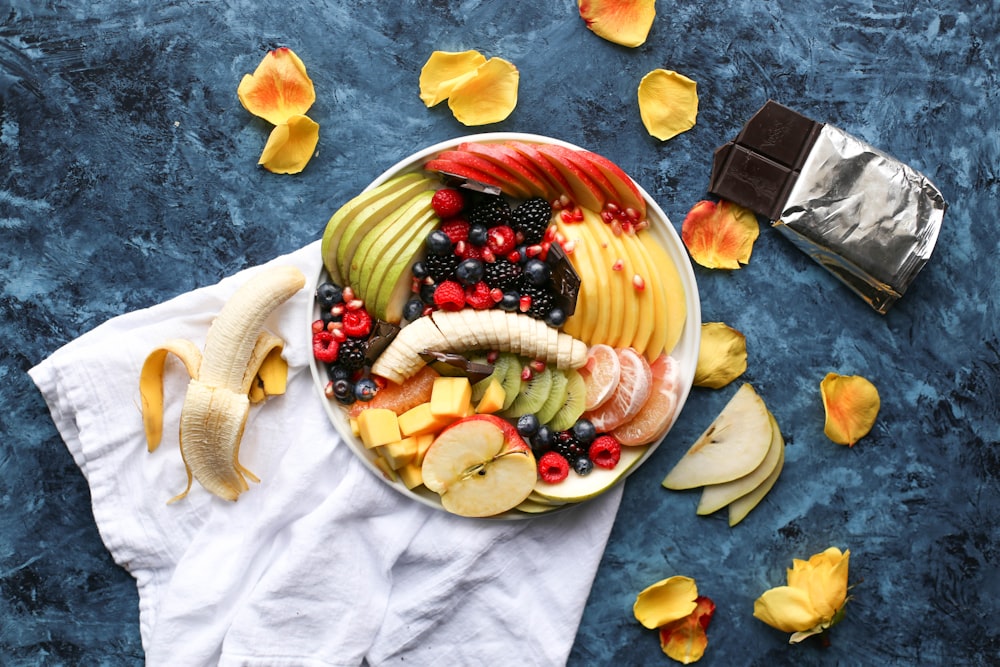
Vegetables, fruits, and cereals provide important vitamins and minerals to keep your body healthy. The evidence consistently shows a link between high protein levels and healthy heart health, as well as lower blood pressure and cholesterol.
In this context, it is too early to assume that the reduction of carbohydrates in short-term studies will necessarily lead to long-term health.
Shift to healthier substitutes
Instead of cutting out carbohydrates, you should cut out carbohydrates – rich foods that offer no health benefits. Other cardiovascular healthy diets include high – protein, low – carbohydrate.
Oats – Oats are a type of whole grain that provides fibre, beta-glucan, in your diet. Try to focus on eating fruits, vegetables, whole grains, nuts, seeds, legumes and nuts, and seeds. They are also rich in fibre and vitamins and a great source of omega-3 fatty acids such as potassium and magnesium.
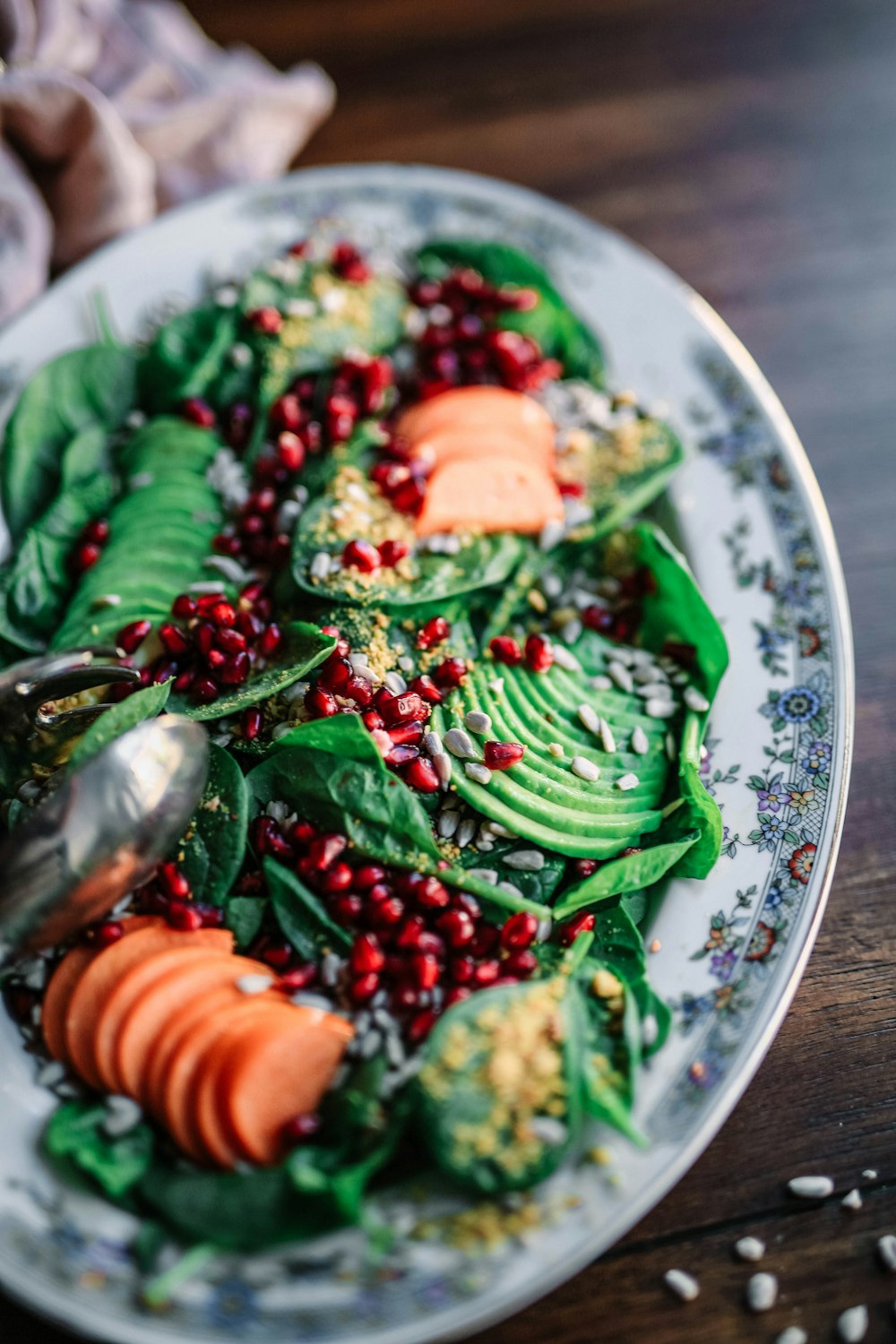
Fibre is known to promote digestion and can also prevent heart attacks and strokes. Remember that eating healthy can greatly improve your health, but it’s not just about that.
Balanced Diet is important
Dietary advice to achieve cardiovascular health should continue to focus on a balanced diet with plenty of fruit, vegetables, whole grains, nuts, and legumes. This diet is naturally low in cholesterol because it highlights healthy fats and proteins as well as healthy carbohydrates and fibre. You should include at least 10% of your total calories from fruits and vegetables in a balanced diet while maintaining reasonable body weight.
A diet rich in fibre has health benefits for cholesterol control, controls blood sugar, promotes regularity, prevents gastrointestinal diseases, and helps with weight control. It helps promote heart health, promotes weight loss, prevent gastrointestinal diseases, control blood sugar, and has health benefits in controlling cholesterol.
Good sources of soluble fibre are dried beans and peas: “Peas are rich in fibre, provide a sweet taste boost and give any dish a bright colour,” says Glassman. Beans are a good source of fibre and plant protein, both of which are linked to heart health.
According to the USDA, a cup of peas contains a wealth of nutrients, including calcium, iron, magnesium, potassium, phosphorus, zinc, copper, manganese, and potassium.
For some delicious recipes, click here!
Switching to whole grain rice is a simple change that can improve your diet. Learn more about filling your plate with healthy, nutritious foods by logging your meals in the MyPlate app.
For more such articles, click here!
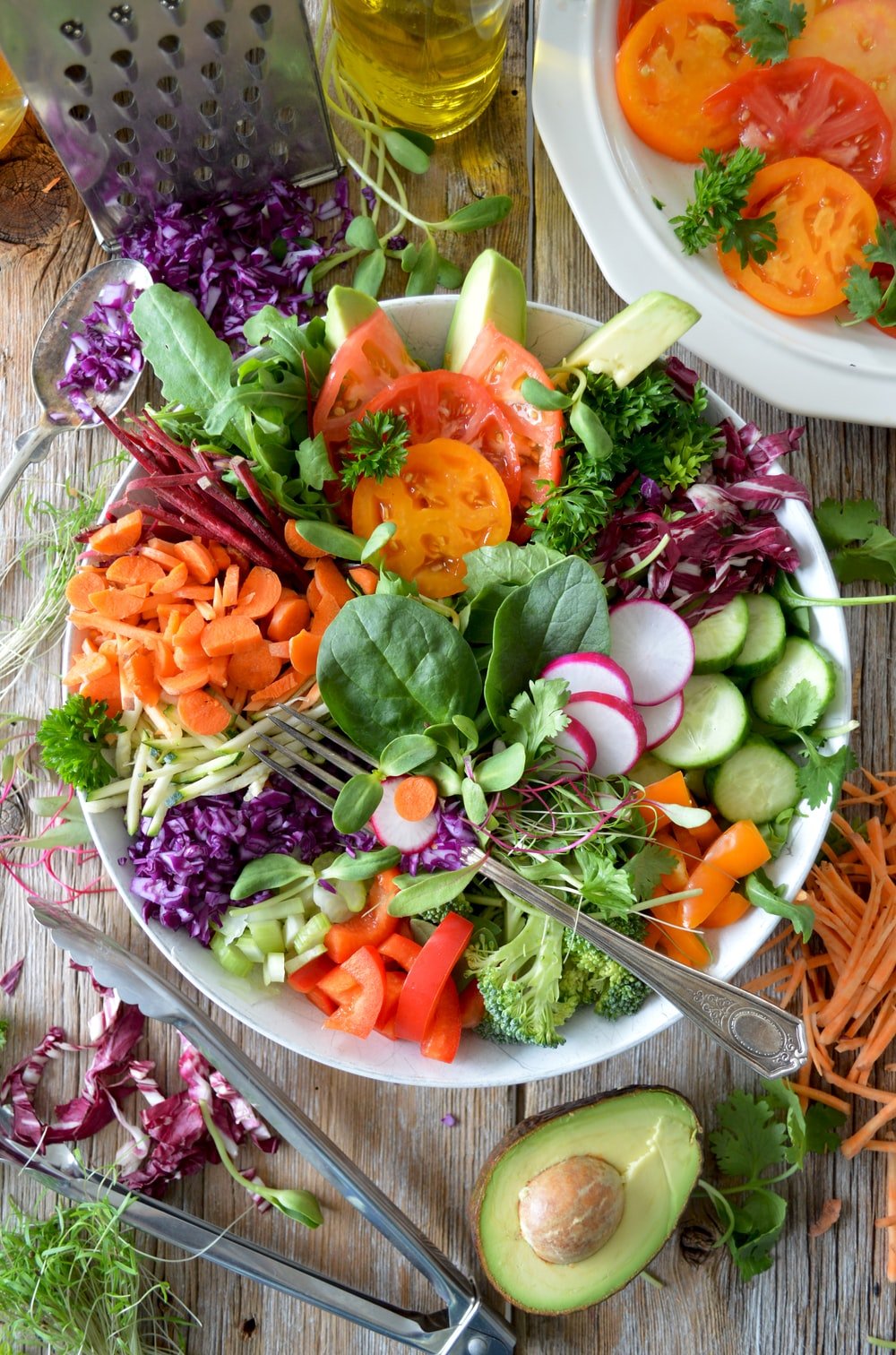
by Dr Neha | Nov 8, 2020 | Health
Gut health is an important aspect you need to look upon. Live fermented foods are a natural probiotic to eat or drink, and studies have indicated that probiotics can help restore gut bacteria to healthy levels that protect against inflammation. All the above-mentioned probiotics thrive in the gut, as do probiotics, many of which are indispensable for healthy gut health and a healthy immune system.
WHERE TO START?
These are just some foods you can append to your diet to promote your gut health. However, the Western diet is full of food that promotes healthy gut flora, such as fruits, vegetables, nuts, seeds, and whole grains.
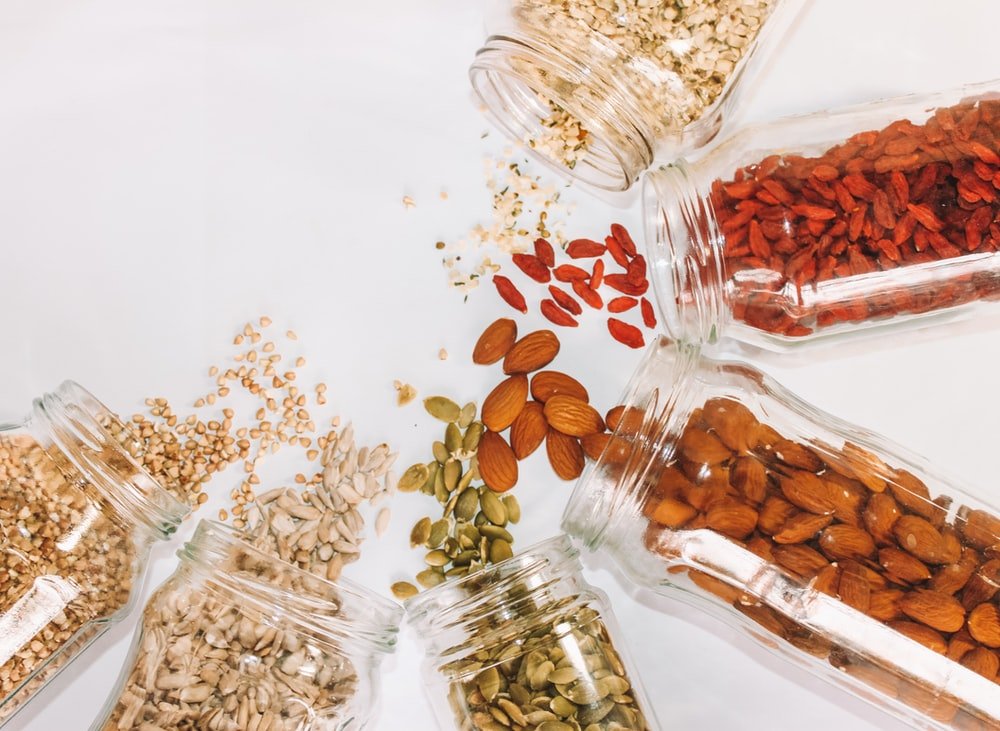
Eating lots of fruit, vegetables and a variety of cereals creates a joyful and healthy microbial in your gut. The microfilm that lives in the gut is a collection of microorganisms that play a crucial role in digestion, mood, and life.
To maintain a beneficial balance of these microorganisms, you should start with a healthy diet that includes fruits, vegetables, cereals, whole grains, and beans, which are rich in fiber.

GOOD GUT HEALTH, HOW DOES IT WORK?
Studies have shown that taking probiotics can make a major contribution to supporting a healthy gut microbiome and prevent intestinal inflammation. Foods that can significantly improve gut health include fruits, vegetables, cereals, whole grains, nuts, seeds, fermented vegetables, and legumes.
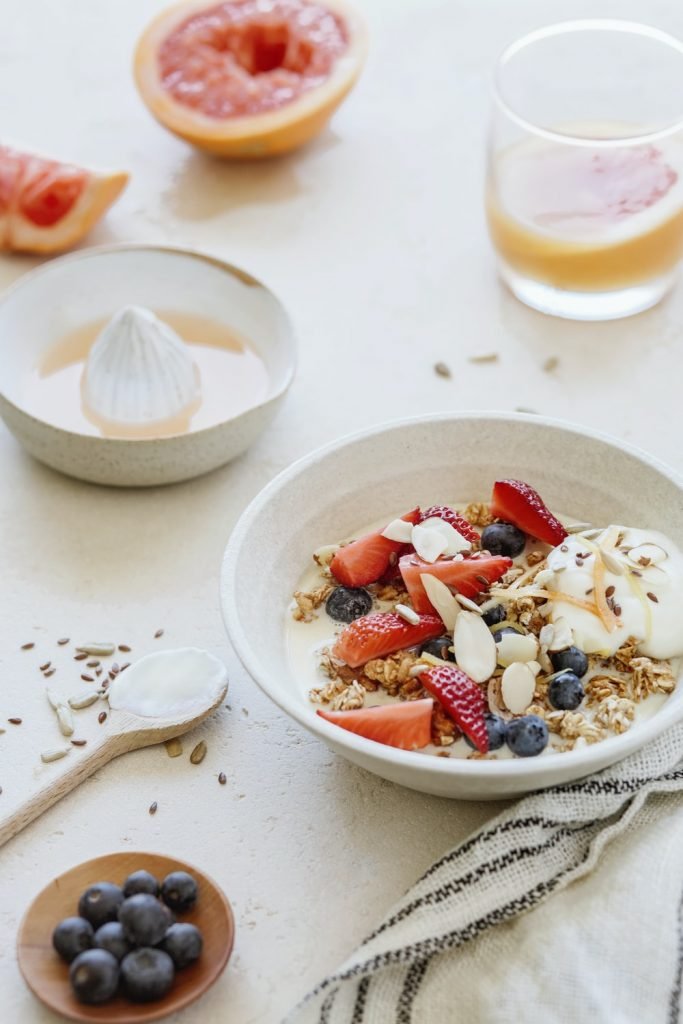
Probiotics have been shown to help the gut microbiome repair itself. The body has the ability to grow bad bacteria and replace them with useful ones by simply eating foods that consist of probiotics.
Natural healing can also be achieved by using clinically proven ingredients such as probiotics, prebiotics, and digestive enzymes. Daily Digestive Essentials is a great way to work with the gut to improve its overall health with steady use.
We tend to utilize the words “improve” and “restore” interchangeably when we refer to gut health, but there is actually a big difference between the two. People want to talk about probiotics and more fiber, and while both are still important components of gut health, they don’t do much for gut health. Dehydration stops the fiber from doing its job properly and can lead to constipation. When you are dehydrated, you also dry out yourself, which should not be overlooked and is still an important part of gut health.
DRINK LOTS OF WATER!
Dehydration impairs intestinal regulation, impairs cognition, causes drowsiness and energy deficiency, increases hunger, and promotes overeating. Dehydration causes nausea and vomiting, increases blood pressure, impairs digestion, impairs cognition, and causes diarrhea and constipation.
Once you are adequately hydrated, make sure you eat high-fiber fruits and vegetables. Exercise plays a major role in gut health and regularity. A healthy diet with fiber-rich, unprocessed foods such as fruits, vegetables, nuts, and seeds – gives your gut the right kind of bacteria to grow. Dietary fiber foods give bacteria the nutrients they need to grow while eating foods like rice with probiotics like yogurt or kefir helps to add live microorganisms that the gut needs to stay healthy. Add many plants to your diet, especially those with high fiber content such as beans, lentils, peas, and nuts.
A hallmark of a healthy gut is a balanced gut microbiome, and the omega-3 fatty acids found in oily fish such as salmon have been shown to correlate with greater gut microbial diversity. Even adding a portion of fish can help your gut bacteria thrive, so eat more whole foods and opt for a portion of high-quality whole food that contains low carbohydrates.
Probiotic supplements can help gut health by adding beneficial bacteria to your gut microbiome. Studies have shown that probiotics can help repair gut bacteria at healthy levels that guard the body against inflammation. Live fermented foods are a natural probiotic that you can not only eat but drink, and it is a great source of vitamins and minerals.
START EATING NUTRITIOUS FOOD RIGHT AWAY!
Eating unhealthy gut flora can affect your health by reducing your gut bacteria and increasing the risk of heart disease, diabetes, high blood pressure, and other health problems.
You can easily incorporate intestinal flora – and incorporate enzymes such as those found in the labeled probiotics into your diet. To get this probiotic, eat fruits, vegetables, nuts, seeds, legumes, and whole grains, as well as fruits and vegetables with high fiber content.

Probiotics are also found in fermented dairy products such as milk, yogurt, and yogurt paste, as well as dairy products such as yogurt, cheese, and dairy products. Here are some delicious recipes you can make out of dairy products.
It is important to include probiotics in your daily diet particularly if you eat fresh fruits and vegetables, many of which are sources of probiotics. One of the things you may have heard about in the digestive tract literature is that increased fiber is of the utmost importance to keep your digestive tract running smoothly. Like grains, nuts are full of fiber and help to improve your gut bacteria.
IN SHORT
Never take your gut health lightly as it is a powerhouse to millions and millions of bacterias that work hard for your well being. Even a little imbalance to it can bring a huge difference to your lifestyle.
Just by adding a few effective changes to your daily life like adding cardio to your day-to-day time, maintaining a fit diet by including lots of fiber, dairy products, etc. Just remember one thing that your health and well-being are in your hands. One step at a time… Good luck!
For more such articles, click here!













Recent Comments